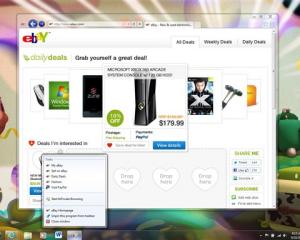Telecom and Vodafone will sell the phones in New Zealand, with Telecom having the LG Optimus 7Q phone available next month and Vodafone launching the HTC 7 Trophy at a as yet unspecified date.
The Optimus has a slide-out qwerty keyboard and the HTC 7 is rated as the most impressive of the Windows phones.
Gen-i Otago manager Peter Thomas said the Windows 7 phone (WP7) was designed to bring together what customers cared about most.
It was a phone for people who did not want to live on their phone.
The key features of WP7 include:
• The only smartphone with Hubs and Live Tiles that update on the start screen.
• Easier and faster-to-find popular features such as pictures, music, games and information about friends and family;Combined basic everyday tasks such as search, taking pictures, interacting with contacts and managing email to do more in fewer steps.
• The first phone to have one button to Bing, Xbox Live, Office, Internet Explorer Mobile and Zune built in.
"The Windows Phone 7 will be one of the leading smartphone operating systems, giving users a mobile internet experience about as close to an integrated computer as they can get," Mr Thomas said.
Gen-i clients were already registering interest in the phone, he said.
Windows phone business manager Mark Bishop said New Zealand consumers would be among the first in the world to have the WP7, which goes on sale later this month in line with a global launch.
"Microsoft believes the gloves are officially off in the smartphone market with the WP7 launch. We think the time is right for a different kind of phone," he said.
However, overseas analysts are not so sure the WP7 will make a dent in the market share of iPhone, Blackberry and devices powered by Google's Android software.
With people getting used to iPhones and iPads, there has to be a good reason for users to switch systems in an already cluttered and competitive market.
Windows phones were, in the past, clunky and Microsoft will have some work to do to convince people to switch back from the sleek phones being used by other suppliers.
In New Zealand, iPhone sales are slowing, with the momentum building for Android-powered phones as people respond to open source software.
Analysts generally praised the new Microsoft platform but had doubts about its success in the highly competitive market.
Ovum principal analyst Tony Cripps said a huge amount was resting on the launch of WP7 for Microsoft, its device and operator partners.
"If WP7 devices sell in large numbers, Microsoft will rightfully be able to congratulate itself for starting with a clean sheet of paper in its efforts to return to the smartphone top table - a strategy launched by chief executive Steve Ballmer in early 2009.
"If it fails to claw back market share lost to iPhone and Android, then WP7 may well mark the point at which Microsoft turns its back on smartphones forever."
Targeting its mobile resources at creating compelling services and attracting advertisers might prove a better option for Microsoft than beginning again with another mobile operating system, in that instance, Mr Cripps said.
Some of the smartphones feature touch screens like the iPhone's and others have keyboards like the Blackberry's, from Canada's Research in Motion.
Mobile makes up only 1% of Microsoft's revenue, but the smartphone market is growing about 30% a year and the software giant is determined to remain a player in that sector.




